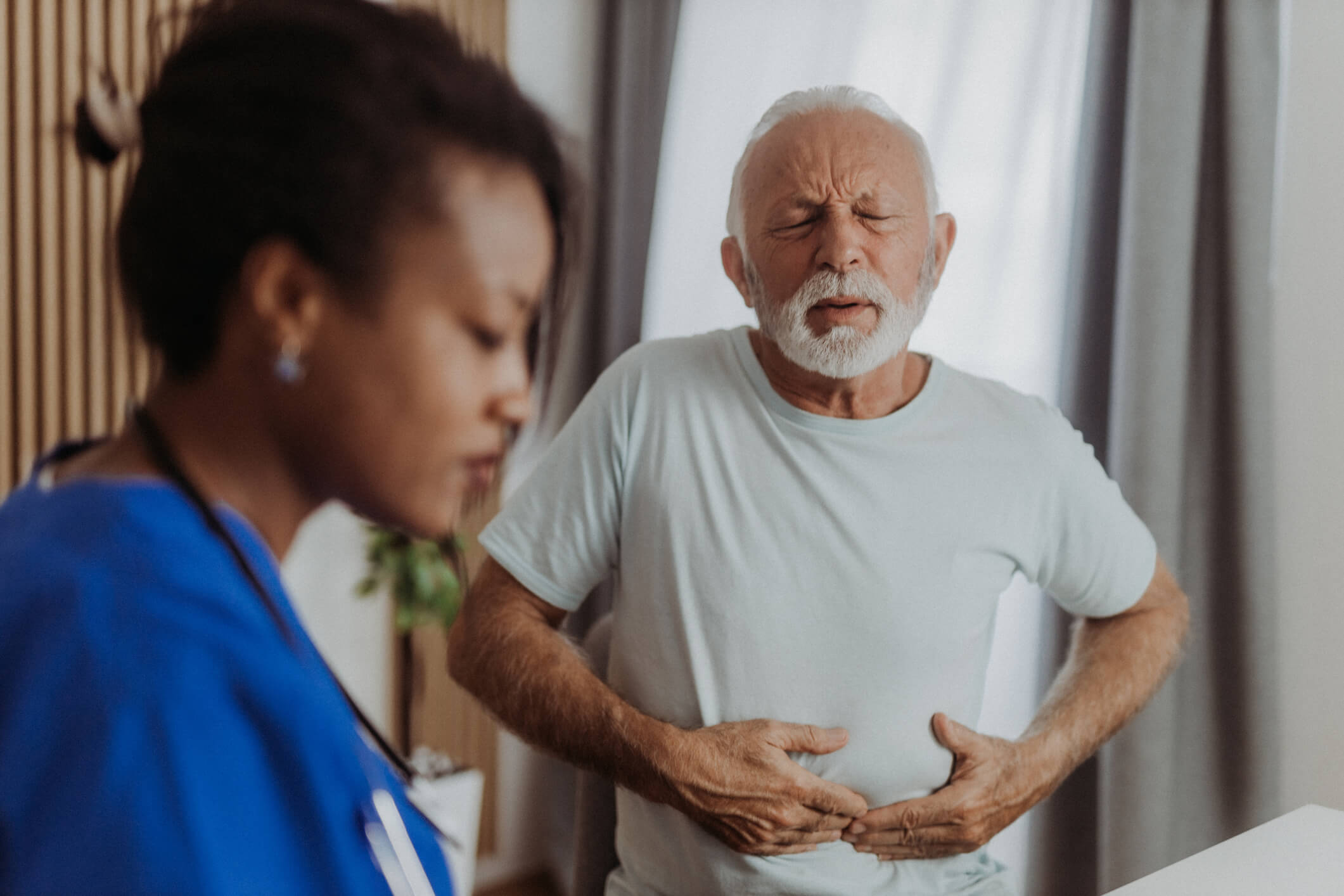
Though rare in the U.S., stomach cancer makes up about 1.5% of all cancer diagnoses annually. The American Cancer Society estimates that over 26,800 people will be diagnosed with stomach cancer in 2024. Also known as gastric cancer, it’s a disease that is usually detected in patients in their upper 60s, affecting more men than women.
Signs & Symptoms of Stomach Cancer
Due to stomach cancer being rare in the U.S., there are no standard guidelines for routine screening for average-risk people, so it is important to understand that some health conditions may be considered normal to some but are also symptoms of this disease. Signs and symptoms include:
- Abdominal symptoms:
- Discomfort above the navel.
- Swelling or fluid buildup.
- Barely having an appetite.
- Blood in the stool or dark-colored stools.
- Feeling full after eating a small meal.
- Losing weight without trying.
- Tired or weakness that could be due to having low blood cell counts or anemia.
- Vomiting (also vomiting containing blood).
The above symptoms are also symptoms related to many other illnesses or infections, including ulcers, and other cancers. Pay attention to these symptoms – if they persist and get worse, see a doctor.
People at High Risk for Stomach Cancer
Those who are considered high-risk have an increased risk of developing stomach cancer. High-risk factors include:
- A family history of stomach cancer.
- Being 60 – 80 years old.
- Being male. Stomach cancer is more prevalent in men than women.
- Being Hispanic, African, Native, Asian or Pacific Islander American. Stomach cancer seems to be more prevalent among these Americans than for White Americans.
- Having pre-cancerous conditions. These conditions put patients at a higher risk of developing gastric cancer, including an infection of Helicobacter pylori (H pylori) bacteria, certain polyps (adenomatous polyps or adenomas), Epstein-Barr virus (EBV) and common variable immune deficiency (CVID).
- Hereditary syndromes such as hereditary diffuse gastric cancer (HDGC), Lynch syndrome, Li-Fraumeni syndrome and Peutz-Jeghers syndrome (PJS).
- Type A blood. Physicians are not sure why people with Type A blood are at higher risk of developing stomach cancers.
Having one or more of these risk factors does not mean that you will develop stomach cancer. However, it is important to talk to your physician to understand your individual risk.
Should you be diagnosed with stomach cancer, Karmanos Cancer Institute and McLaren Health Care have experts across the Karmanos Cancer Network who specialize in stomach cancer care.
Karmanos Locations
Find a Karmanos Cancer Institute near you.
Click here